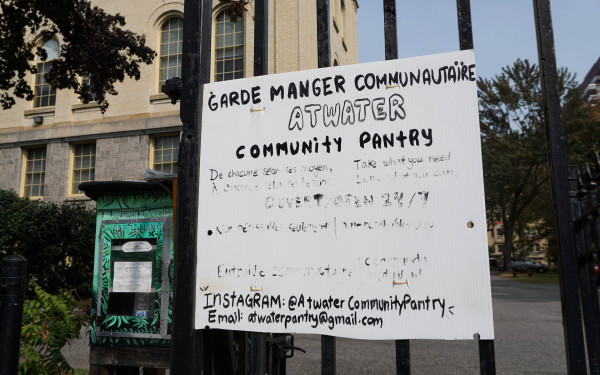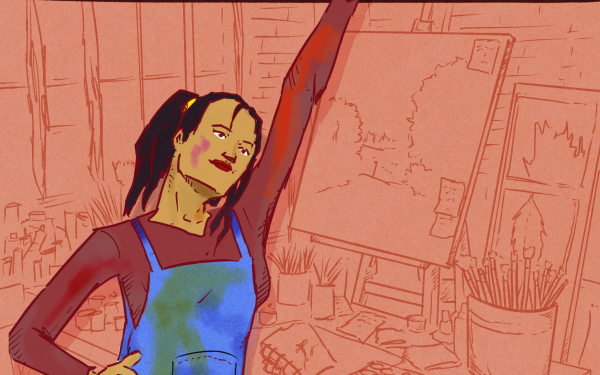Community kitchens are collaborating to fight food insecurity
High grocery prices lead food security organizations to share ingredients
Several food security organizations in Montreal have banded together to help ease the burden of food inflation on residents. But as grocery prices rise, community kitchens have had to depend on each other to address the scarcity created by expensive ingredients.
Elizabeth Fraser, an organizer for Community Cooks Collective (CCC), believes that addressing food insecurity is a collective endeavor. According to Fraser, partnerships between organizations often consist of sharing ingredients and pooling money in order to supply more food than a single community kitchen could produce individually.
“I think that community groups are part of a systemic change,” she said. “People are saying that they're not going to let this happen. They're going to try to meet a need in the community that's not being met by businesses.”
The organization prepares and delivers meals to other community kitchens across Montreal. Community members cook using free ingredients supplied by CCC which are then gathered and donated in bulk.
However, according to Patrick Cortbaoui, the managing director of the Margaret A. Gilliam Institute for Global Food Security, community kitchens are only a temporary solution to a larger issue of rising food insecurity.
“I believe that [community kitchens] are doing extraordinary work,” Cortbaoui said. “But the burden is not on their shoulders. It's on the government, on the policies, on local awareness.”
According to Cortbaoui, food is becoming inaccessible because the supply of Canadian groceries is held in the hands of a small number of companies. Loblaws, Sobeys, Metro, Walmart and Costco hold roughly 80 per cent of grocery market sales. Cortbaoui said that the monopolization of the grocery industry has led to a surplus of food that is becoming increasingly difficult for many Canadians to access.
As a result, Cortbaoui said Canadians have been leaning on community organizations to fulfill the needs that grocery stores are unable to meet. Community kitchens have followed in a similar fashion, relying on each other to fill the gaps caused by the lack of access to affordable produce.
The Open Door, an emergency shelter in Milton-Parc, is one of the organizations that CCC is partnered with. Dan Marré, the shelter’s weekend team lead, said that The Open Door is not always able to supply the community with certain nutritious foods like dairy and meat.
Marré said that The Open Door’s partnerships with smaller community kitchens is sometimes the deciding factor in whether they can offer a well-balanced menu.
“Let's say we have a lot of vegetables – that often results in less protein in our menu,” Marré said. “Another organization might have meat on their menu, so we can combine these two and provide something that's more fulfilling for the rest of the community.”
According to Tatianta Townsley, another organizer at CCC, donating meals helps address the “imbalance of resources” between different community kitchens across the city. Smaller organizations like CCC may not have the capacity to serve clients directly, but the kitchen’s volunteers donate their excess time and energy to make food that other organizations can then distribute.
Regardless of the quantity of food an organization is able to provide, Townsley said that building connections between kitchens is the first step to creating a network that can support people struggling to eat.
“In an individualistic society, we aren’t taught to value helping our neighbours,” Townsley said. “I think there's just a lot we can do for each other, and it's important to remember that.”






.IMG_1928_600_375_90_s_c1.jpg)
